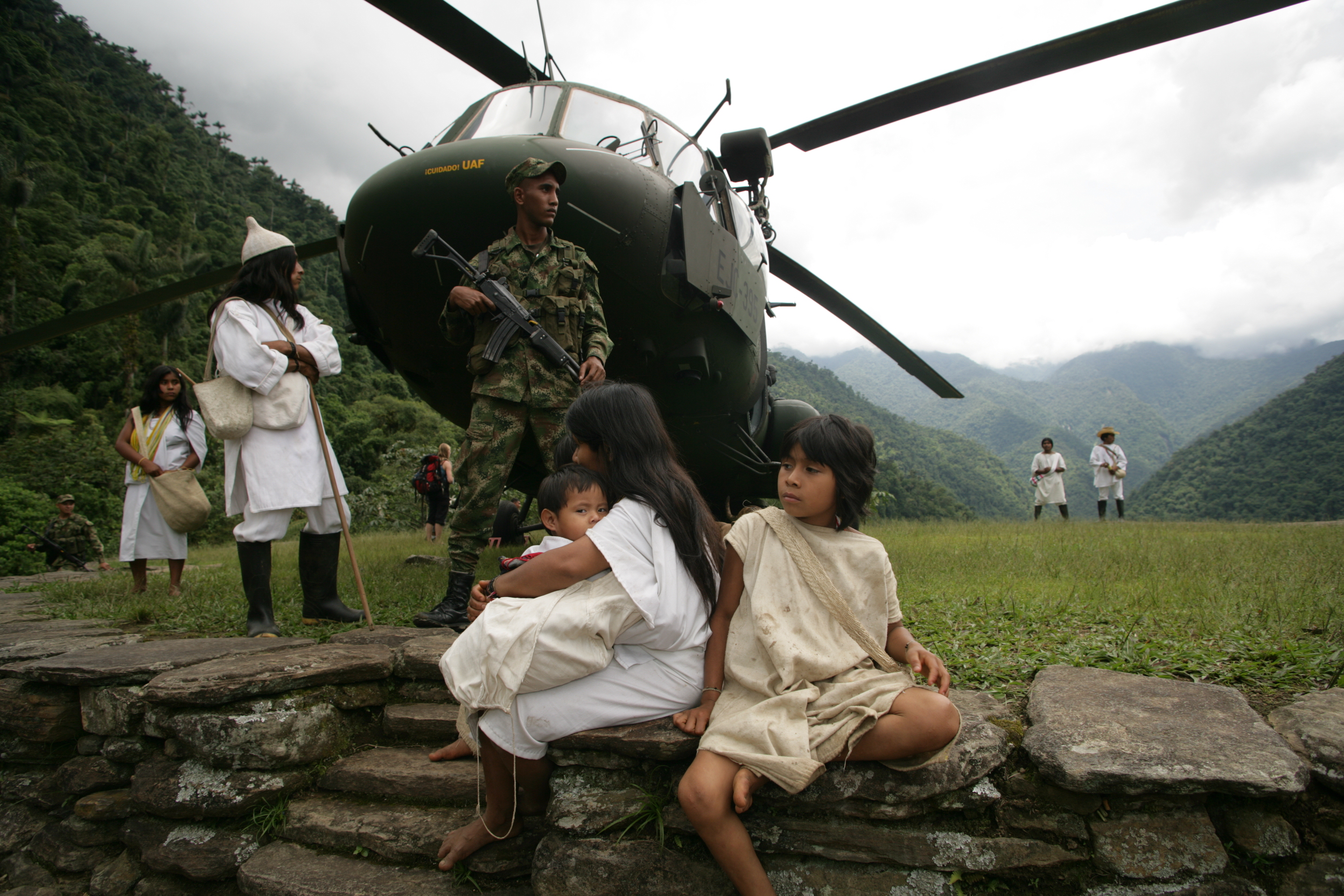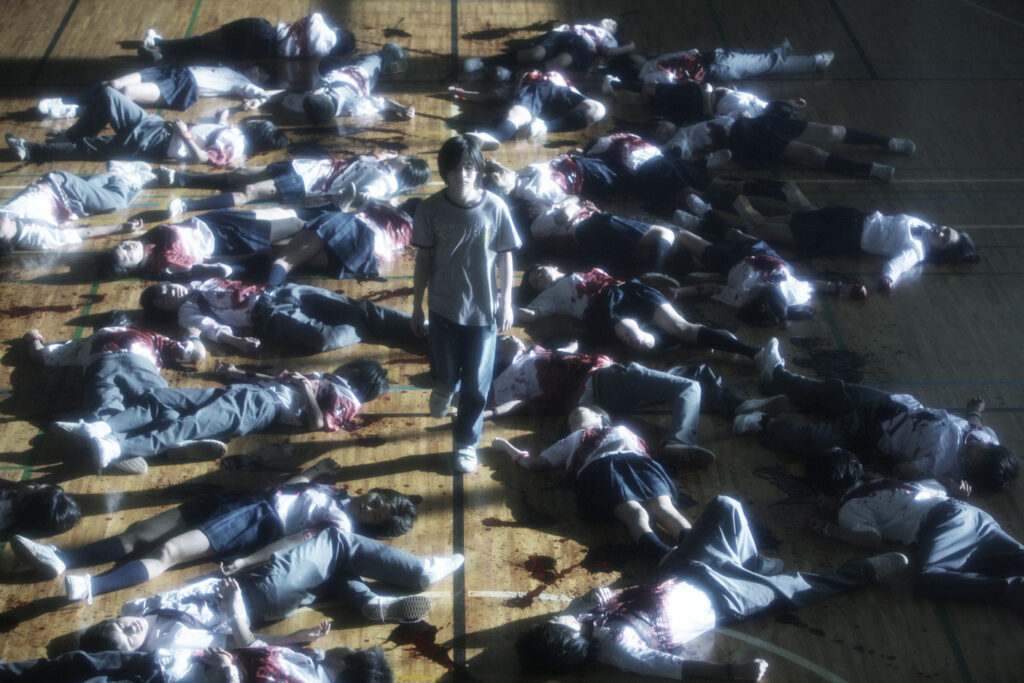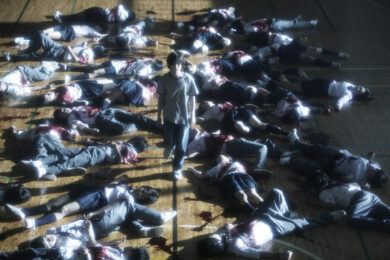Confessions
As a storyteller, Tetsuya Nakashima is unique in cinema. Outlandish and horrific scenarios play from the hands of twisted characters with an almost compassionate determinism. Emphasis is rarely placed on absolving their actions or empathising with their situation, yet Nakashima goes to extreme lengths to force us to understand why someone ends up with an inhumane perspective or committing some drastic act of violence. No matter at what stage in the characters’ moral disintegration we’re introduced to them, their back-story is almost always played out, like some defence in a last judgement trial. Usually they begin a model citizen, parent or child who, without a worry to cry on, has their heart crushed by the world’s cruelness.
Confessions departs slightly from Nakashima’s most famous films, Kamikaze Girls or Memories of Matsuko, in that though its central story isn’t that much darker, it is presented without his usual cartoonish irony. These previous films display a wonderful disharmony of gripping content delivered with humour, as if a disturbing tale of child abuse is being told by a laughing, juggling clown wearing a tutu. Rather, throughout Confessions, every smile or laughter sits above a well of sickness. All the intricately prepared storyboarding and painstaking attention to detail remains, yet never turns from the bleak, emphasised further by the brooding soundtrack, to which Thom Yorke effectively contributed.
High-school teacher Yuko Moriguchi lost her only daughter to what was decreed a freak accident only months ago. After doing some investigating of her own, Yuko confronts her class with her findings, revealing the culprits of her daughter’s death. In her speech she make a brutal confession of her own to the two culprits. In confessional chapters the culprits’ excuses are given in sympathetic hearings of their individual histories that also includes the catastrophic effects that have followed from Yuko’s own confession.
Student A, Shuya, seen as the ringleader, is a science prodigy who is denied accolades and the attention of his estranged mother for his achievements by a local adolescent murderer, who steals all the headlines. After being castigated by his peers, Shuya forms a strong bond with a kindred spirit who, like an introverted Bonnie Parker, is willing to shoulder his suffering despite receiving abuse from her class mates. Shuya’s drive for recognition from his mother never leaves and, alongside Yuko’s manipulation and desire to reap further revenge for her dead daughter, leads to the film’s explosive finale.
Student B, Naoki, is the ignored student desperate for peer acceptance. With the artful calmness of a disturbed chess player, Yuko drives Naoki to total delirium then nihilism. The exact details of the young girl’s murder spiral out in Naoki’s own confession. One of Yuko’s pawns is her replacement teacher, an achingly annoying young male obsessed with winning being like a caring older brother for his students.
Sadistic and brutally clever, Confessions is Nakashima’s most powerful film to date, which is no mean feat given he is one of the most spectacular directors living today. His obsession with exploring the detrimental effect the normal social order has on an individual is perhaps better comparable to J.D Ballard at his insightful best.
My Kidnapper

My Kidnapper is quite an unbelievable story. Years after being kidnapped in Columbia by a guerrilla group, Mark Henderson gets an email from Antonio, one of his kidnappers. Over five years they build up a relationship via emails; the kidnapper even invites Mark to his wedding. Driven by an unbearable curiosity, Mark sets out with three fellow captives (two Israelis, and one German girl) to the place where they were kidnapped. As well as being a journey of catharsis ending in a face-to-face meeting with his former kidnapper, the entire team need questions answering about why they were kidnapped, and so find some meaning in their ordeal.
Each strand of the film’s story is fascinatingly multi-faceted as each of the captives fill in gaps left by archive news footage with their own individual perspectives. Where the film drags is more in the explicitly emotive questioning by narrator Mark. There’s a lot of ‘How did you feel? at this point?’, which gets tiresome, as you can well imagine it felt pretty rotten. Their emotional trials are unearthed most effectively when the group begin to disagree on how they saw the kidnappers, how they thought about their chances of survival and the fractions this caused within the group. The two Israelis have a completely different perspective on the ordeal from the German girl and Mark, which opens up old disputes.
Nicely played into the personal story is the political tensions – unavoidable given they were taken by Marxist rebels in Columbia, which has a long history of accusations of violence and corruption from the left and right leaning parties. Thankfully this doesn’t directly turn into an analysis of Marxism (given the filmed version of Das Kapital is nine hours long) or engage with a solution to Columbia’s problem. This would be a enthralling film in itself, but isn’t the purpose of My Kidnapper. The film’s political observations are rousingly restricted to the personal struggle of the Columbian people whom all political sides claim to be fighting for. The distinction made by the kidnappers of the government sitting on one side and the Columbian people on the other is questioned when the team visit local villages, some of who served them food as captives. Rather than offering liberation, their story is one of perpetual fear and captivity whereby helping the guerrilla is met with government oppression and refusal to cooperate is rewarded with death. There’s also the captives’ struggle to understand the contradiction that in kidnapping – and so removing basic human rights from – the tourists, the guerrillas hoped to bring global awareness to the Columbian government’s human rights abuses.
The final quizzing of the kidnapper comes when all these questions are left hanging. Although confronted with these points, the Paxman-style grilling is never really delivered. This is somewhat forgivable as Antonio is very much humanised through Mark’s eyes.
My Kidnapper is an amazing story that becomes increasingly revealing as the travellers’ memories are layered on their discoveries. Mark’s commentary is extremely measured considering the horror of his experience, and each of the kidnappers offer uniquely insightful observations.



